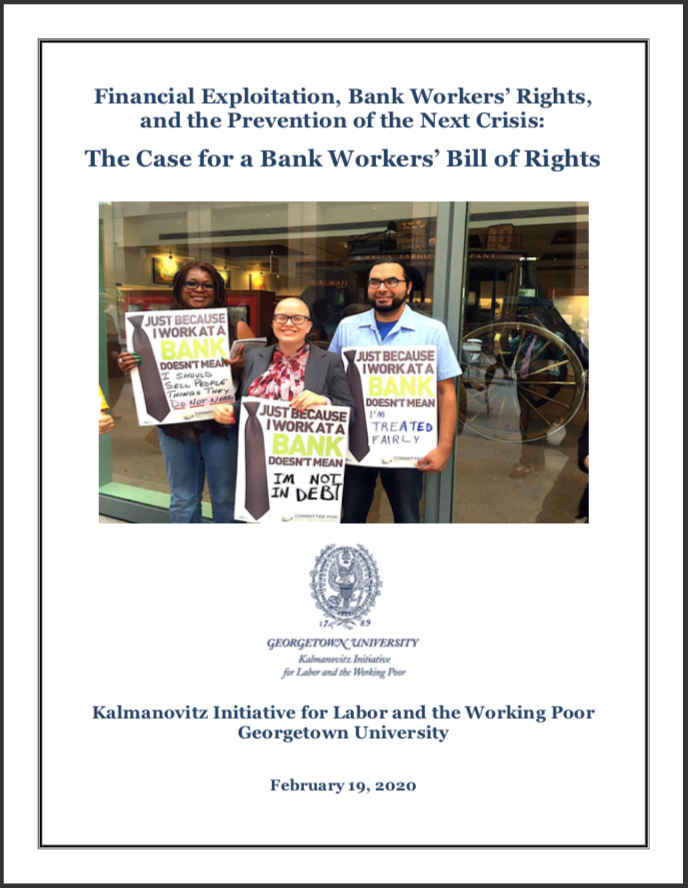The Case for a Bank Workers’ Bill of Rights
Posted in Publications

The crisis of 2008 and the ensuing Great Recession revealed both the extent to which this country is vulnerable to predatory manipulations of powerful corporate entities and the degree to which the financialization of our economy has contributed to growing inequality, the concentration of incomes and wealth, and the growing precarity of American working families. The crisis and recession showed further that without effective regulation backed by the countervailing power of organized workers and consumers, the financial sector was prepared to aggressively pursue windfall profits in the short term over long-term growth and stability. The global assets of America’s “big six” banks are roughly equivalent to one-half of the U.S. GDP. These entities are too big and too powerful not to be held accountable to the common good.
Years into a recovery from the 2008 catastrophe, we have yet to deal with many of the structural problems that led to it. Banks have not only rebounded from the recession, they have gone on to post record profits in excess of $150 billion per year. Yet most of the banking industry’s front-line workers still live paycheck to paycheck while CEO pay skyrockets. The most egregious disparity is at Citi whose CEO made $24.2 million in 2018, which was 486 times the median pay of $49,766 for its nearly 66,740 employees. At $15 an hour at full-time, Citi’s lowest paid employees earn $31,200 – a whopping 776 times less than CEO Michael Corbat.
Meanwhile, the regulatory fixes that were put in place after the crash have already begun to erode. We learned hard lessons in 2008 that the boards of directors of our biggest financial institutions could not be trusted to provide the oversight necessary. If we are to avoid a repeat of the past, we need to address the precarious position of bank workers and make them allies in a public effort to ensure that their employers do not return to the predatory practices that helped trigger the 2008 crash.
As we enter the third decade of a century where economic change is being driven by financialization, the United States continues to occupy a dubious position: among the world’s developed economies, this country is an outlier in lacking an independent voice for bank workers. While bank workers unions are common across the world, bank workers are unorganized in the United States. Bank workers’ lack of an organized voice is all the more glaring in the light of existing laws which do not adequately protect either their rights or those of the consumers with whom they deal every day. To address these problems and diminish the likelihood of a repeat of the abuses that led to the 2008 crash, we need a Bank Workers Bill of Rights.
Read our paper on The Case for a Bank Workers’ Bill of Rights here.
